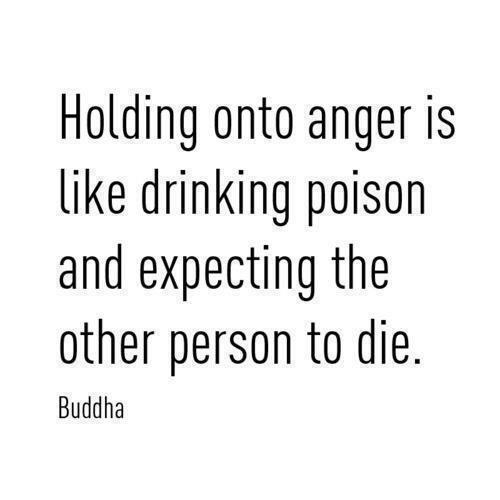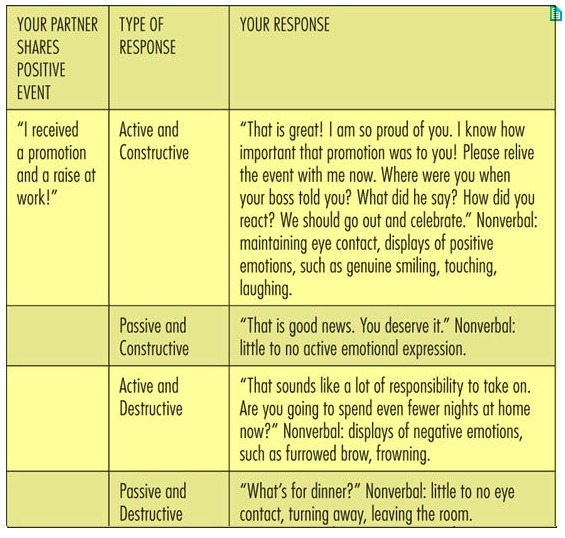The One Word That Sums Up Everything You Need To Do To Be Happier

That word is “PERMA.” It’s an acronym for:
- Positive Emotion
- Engagement
- Good Relationships
- Meaning
- Accomplishment
Martin Seligman is a professor at the University of Pennsylvania and one of the foremost experts on the study of happiness. He gave the following talk in 2011 explaining “PERMA”, the research behind it, and how we can use it to improve our lives. I (Eric Barker) will break it down after the video.
For the longest time the model of happiness we’ve had has followed how we look at health: If you’re sick, we try to make you not-sick. If you’re depressed, we try to make you not-depressed.
But can’t we do more than merely eliminating suffering? Can’t we try to go from normal to happier? Can we flourish?
Seligman explains that the things we need to do to be happier are all tied up in PERMA. So let’s break down what Seligman has to say.
P: Positive Emotion
We need 3 positive things for every negative thing in order to thrive.
Psychologist Barbara Frederickson is an expert on flourishing and has been an advocate of finding ways to bring more positive emotions into our lives. In her research she discovered a critical 3 to 1 ratio, indicating that we need to have three positive emotions for every negative one in order to thrive.
And:
Frederickson has found out that if we really want to prosper, we shouldn’t try to eliminate negative emotions, rather, we should work on keeping the ratio at three positive for every one negative. Most of us, she has found, have two positive experiences for every negative. This gets us by, but it is effectively languishing.
This also ties in to what Seligman explains is one of the most powerful happiness boosting exercises: 3 blessings.
This technique has been proven again and again. Seligman explains it in his book Flourish: A Visionary New Understanding of Happiness and Well-being:
Every night for the next week, set aside ten minutes before you go to sleep. Write down three things that went well today and why they went well. You may use a journal or your computer to write about the events, but it is important that you have a physical record of what you wrote. The three things need not be earthshaking in importance (“ My husband picked up my favorite ice cream for dessert on the way home from work today”), but they can be important (“ My sister just gave birth to a healthy baby boy”).Next to each positive event, answer the question “Why did this happen?”
E: Engagement
This is what is often called flow. It’s when you’re so wrapped up in what you’re doing that the world fades away:
Flow is the mental state of operation in which a person performing an activity is fully immersed in a feeling of energized focus, full involvement, and enjoyment in the process of the activity… The hallmark of flow is a feeling of spontaneous joy, even rapture, while performing a task although flow is also described… as a deep focus on nothing but the activity – not even oneself or one’s emotions.
When do you usually feel flow? It’s when you’re challenged but not beyond your skill level. Passive activities don’t create flow. Neither do overwhelming challenges.
There are a handful of things that need to be present for you to experience flow:
- Clear goals that, while challenging, are still attainable.
- Immediate feedback.
- Knowing that the task is doable; a balance between personal skill level and the challenge presented.
- Strong concentration and focused attention.
- The activity is intrinsically rewarding.
More on creating flow here.
R: Relationships
Seligman talks about a relatively recent discovery in what makes good relationships. Often it’s not how you fight, it’s how you celebrate:
Shelly Gable, professor of psychology at the University of California at Santa Barbara, has demonstrated that how you celebrate is more predictive of strong relations than how you fight.
He also covers the type of speaking that improves relationships. It’s called “active-constructive.”
M: Meaning
Meaning comes from belonging to and serving something that is bigger than you are.
Can we build meaning in our lives? Yes. Seligman explains one exercise is to write your own obituary. What do you want your legacy to be?
Via Richard Wiseman’s excellent book 59 Seconds: Change Your Life in Under a Minute:
Asking people to spend just a minute imagining a close friend standing up at their funeral and reflecting on their personal and professional legacy helps them to identify their long-term goals and assess the degree to which they are progressing toward making those goals a reality.
In the past I’ve encouraged my students to draft their obituary as part of an extra-credit exercise, asking them to write it as they wished it to appear after a long life. I know it sounds morbid, but this assignment is an excellent way to expose the gap between how people live their lives and how they want to be remembered. It’s a sobering experience at any age. The real benefit, of course, is that the writer gets to confront any such inconsistencies before it’s too late. I can’t tell you how many students have told me that this experience was a real wake-up call for them— one that I hope has changed many lives. We all must ask ourselves, if our obituaries were written today, would we be happy with what was written?
9 minutes in to his famous Stanford commencement speech Steve Jobs discusses the importance he placed on thinking about death during life:
“Remembering that I’ll be dead soon is the most important tool I’ve ever encountered to help me make the big choices in life.”
A: Achievement
What has research shown is most tied to success? Seligman says it’s “grit“. Perseverance.
Via Dan Pink’s excellent book Drive: The Surprising Truth About What Motivates Us.
The best predictor of success, the researchers found, was the prospective cadets’ ratings on a noncognitive, nonphysical trait known as “grit”—defined as “perseverance and passion for long-term goals.”
Researchers have found that grit is more predictive of success than IQ in a variety of challenging environments from Ivy League schools to military academies to the National Spelling Bee.
More about grit (and how to be “grittier”) here.
Want to learn more about how to use these ideas to be happier? Check out this post.
Join over 140,000 readers. Get a free weekly update via email here.
Related posts:

No comments:
Post a Comment